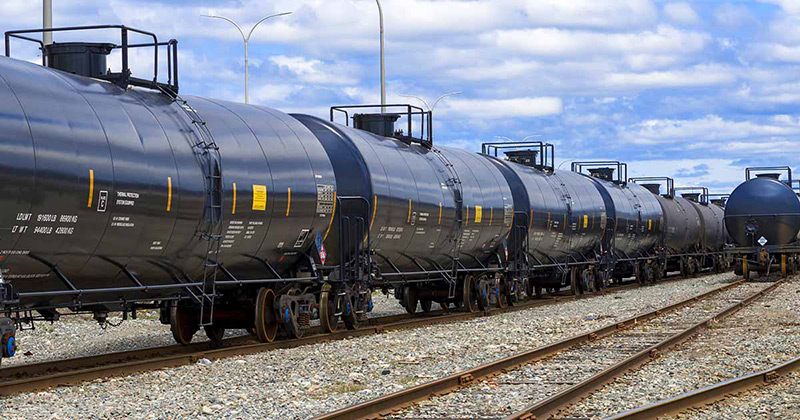Chemical manufacturers must leverage technology that provides visibility and accurate insights as they navigate railroad delays.

By Amanda Goodman, Lead Product Consultant for ECI Software Solutions
The railway industry has been facing labor shortages, causing delays across industries who rely on freight to transport product. A report by the American Chemistry Council (ACC) reveals that chemical manufacturers have faced three consecutive quarters of supply chain and freight transportation disruptions that harmed their U.S. manufacturing operations. While some businesses may try to overcome this challenge by switching to a different mode of transportation, such as trucks, chemical manufacturers are unable to do the same due to their large load sizes and safety regulations.
If anything, the demand for freight transportation continues to accelerate, a challenge complicated by ever-leaner staffing. According to a director of the Port of Los Angeles, the daily number of rail-designated shipping containers has nearly quadrupled from a daily norm of 9,000 units to roughly 35,000 units. Additionally, one analyst stated that railroads have lost 20% of their employees in addition to the many jobs that were eliminated before the pandemic.
COVID-19 introduced a number of unforeseen complications that caused imports to fluctuate wildly, and now that the worst appears to be over, imports are rising rapidly. This time around, however, there are fewer workers to handle the freight. What this means for the chemical industry, and the impact it will have on delivery, must be carefully considered as the demand for freight ramps up.
Chemical manufacturers are looking for different ways to transport their products to ensure that items are delivered as quickly as possible, but bulk purchases remain a problem as over congested railways struggle to fulfill expectations.
In addition, because chemical manufacturers run batch productions, their inventory is already time sensitive and complicated before any possible supply disruptions are factored in. Tracking is an essential part of ensuring a product batch is valid and ready for shelves – without that assurance, chemical manufacturers may incur additional problems down the line.
To put the fallout into perspective, the aforementioned ACC report shows that more than half of chemical producers (52%) have pulled back on production because they can’t ship products to customers. More than one-third (35%) have endured order cancelations amid customer concerns that their order would not arrive on time, if at all. And nearly all chemical manufacturers (97%) said that they modified their operations in response to supply chain issues and/or transportation delays and disruptions. In addition to being inconvenient, delays may also increase company expenditures as they search for workarounds, additional railcars, and reallocate resources to shipping management.
Between supply chain disruptions, labor shortages and the highest inflation in decades, chemical manufacturers need to explore other ways to move product. The best thing manufacturers and businesses can do at this stage is to arm themselves with a redundant distribution plan and visibility of the delays and shortages they may face in the near future. It is critical that manufacturers have extremely accurate insights into their current on-hand inventory levels at all locations so they can proactively anticipate and ensure adequate levels where needed.
Additionally, these findings can help manufacturers to build higher levels of buffer inventory to successfully manage amid inevitable and potentially sustained disruptions of their normal transportation methods. Implementing forecasting technology and real-time analytics will help them weather through the challenges that lie ahead.

Amanda Goodman is lead product consultant for ECI Software Solutions, a provider of cloud-based business management solutions.
Scott Ellyson, CEO of East West Manufacturing, brings decades of global manufacturing and supply chain leadership to the conversation. In this episode, he shares practical insights on scaling operations, navigating complexity, and building resilient manufacturing networks in an increasingly connected world.